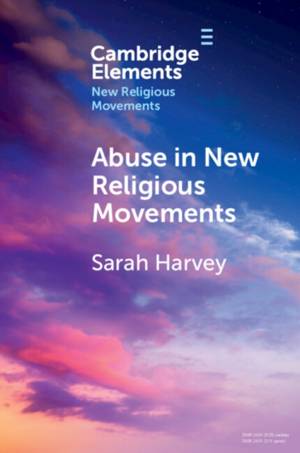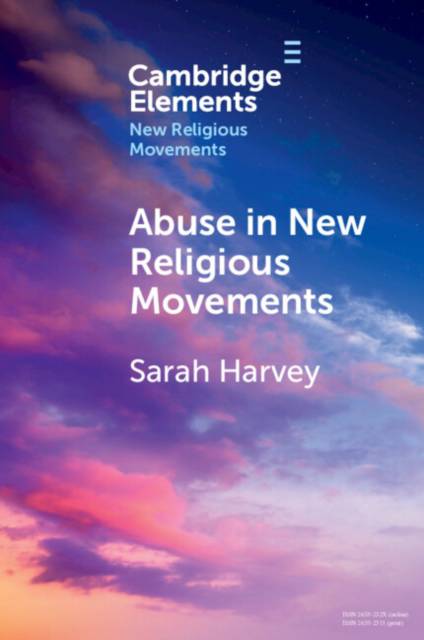
- Afhalen na 1 uur in een winkel met voorraad
- Gratis thuislevering in België vanaf € 30
- Ruim aanbod met 7 miljoen producten
- Afhalen na 1 uur in een winkel met voorraad
- Gratis thuislevering in België vanaf € 30
- Ruim aanbod met 7 miljoen producten
Zoeken
Omschrijving
This Element analyses issues of abuse in new religious movements (NRMs). It argues that abuse in NRMs is not unique but that certain factors can be intensified in NRM contexts - propensities for separation from wider society, teachings on unique legitimacy and exclusivity, and charismatic authority. First, a historical overview addresses how abuse in NRMs has been approached and understood, linking this to the development of NRM and cultic studies and their preferred terminology. Second, a theoretical framework allows consideration of the ways in which the interlinked structural and cultural factors of religious movements can contribute to the perpetration, legitimisation or concealment of abuse. Finally, the Element presents an applied case study analysing the interplay of these factors in the Jesus Fellowship Church, a UK-based NRM which closed in 2019, partly in recognition of abuses that had occurred. This title is also available as Open Access on Cambridge Core.
Specificaties
Betrokkenen
- Auteur(s):
- Uitgeverij:
Inhoud
- Aantal bladzijden:
- 75
- Taal:
- Engels
- Reeks:
Eigenschappen
- Productcode (EAN):
- 9781009660860
- Verschijningsdatum:
- 11/12/2025
- Uitvoering:
- Paperback
- Formaat:
- Trade paperback (VS)
- Afmetingen:
- 152 mm x 229 mm
- Gewicht:
- 127 g

Alleen bij Standaard Boekhandel
+ 66 punten op je klantenkaart van Standaard Boekhandel
Beoordelingen
We publiceren alleen reviews die voldoen aan de voorwaarden voor reviews. Bekijk onze voorwaarden voor reviews.








